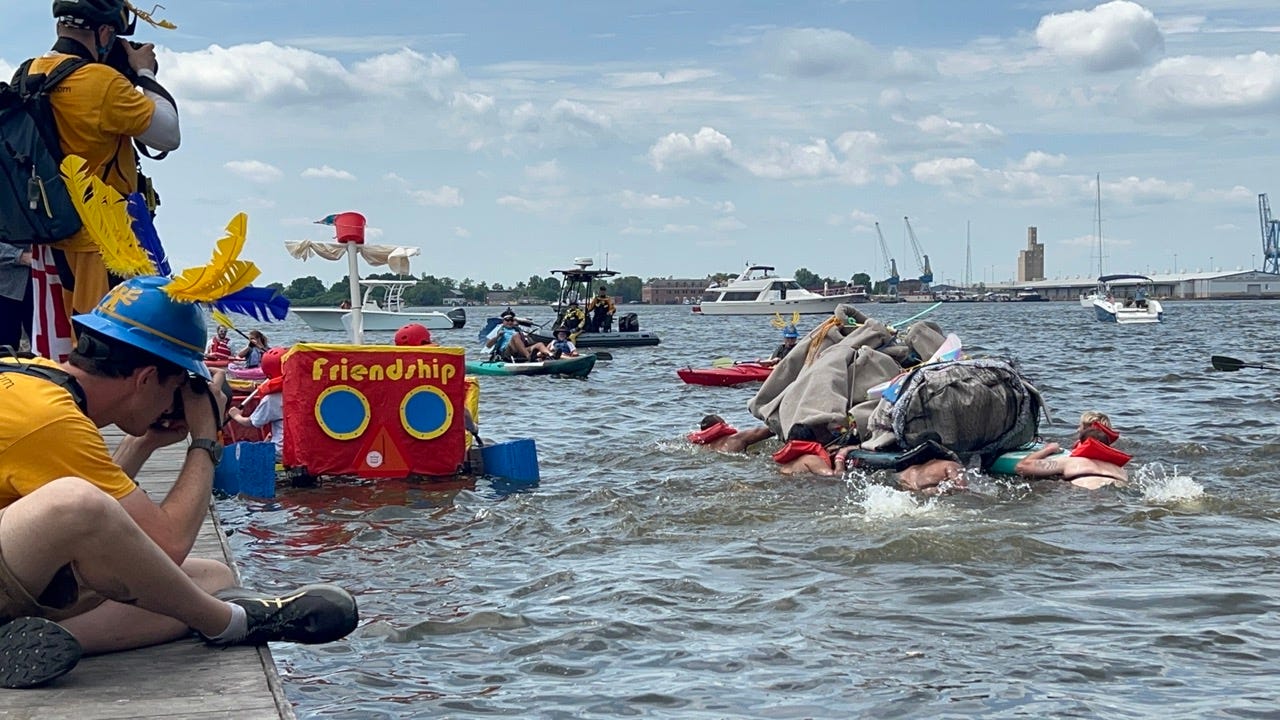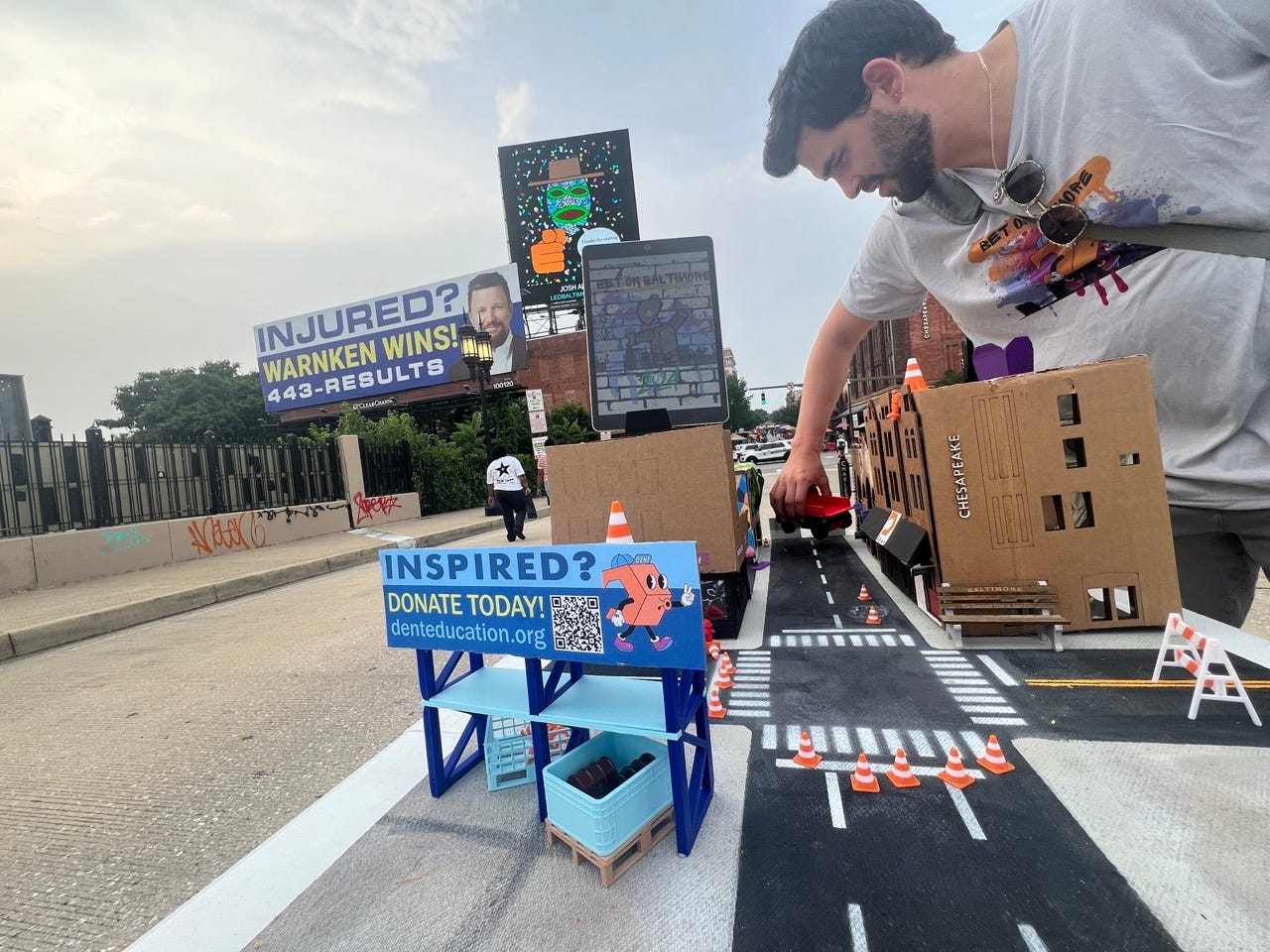Hi Readers,
It’s me again. Hello! Coming off of a long weekend of socializing. Let’s jump right in to something on my mind for the last 6 weeks. I’ve wrestled with this post for long enough and it’s time I send it.
Boats and Economics and a new metaphor.
We’ve all heard the phrase “a rising tide lifts all boats.” It’s quippy. Catchy. I hear it frequently in economic development circles, conferences, and pressers. I’ve heard it used to justify tax cuts, startup investment, deregulation, and more. It’s the rallying cry, and rationale, behind the “big-game hunting” strategies focused on attracting big companies, boosting GDP, and pouring resources into “high-growth technologies.” If this aphorism is true, then it calls attention to the rising tide. Grow the economy, the logic goes, and everyone benefits…albeit eventually.
This is a silly ass quote at best. And a dangerous false equivalency at worst.
The metaphor, one could say, doesn’t hold water. Har har. But seriously. It’s an over simplification of a human system that is messy and nuanced.
Yeah but Anand... aren’t all models simplifications? After all, isn’t that the point of a model?
Yes reader. It IS the point of a model. But it’s also important to remember the messiness and complexity of reality.
Below are five ways this phrase falls short.
Rising water level ≠ better lives
We’re measuring the wrong thing.
The rising tide analogy draws attention to the water level. Not the boats. The water level is not the point. Progress and better livelihoods are not necessarily an obvious effect of economic growth. The analogy confuses economic growth with shared prosperity. A rising tide of GDP or investment doesn’t automatically improve lives if the benefits are not distributed equitably. You can have record stock market highs while food insecurity and homelessness increase. Without measures of well-being—like public health, educational access, housing stability, or life expectancy—baked into the understanding or measurement, growth metrics are just numbers.
We’re assuming a rising tide impacts boats uniformly.
Second, not all boats experience a higher tide equivalently. In the open ocean, a rising tide will lift a fast sailing yacht smoothly while a small boat in shallow water could get smashed against rocky shores. Some boats are tied to the dock with a taut rope, while some are in open water already. This metaphor tricks us into thinking of neat rows of identical boats all rising in relative unison. We know this isn’t the case in the real world.
We assume said boats can handle a higher tide.
Not all boats can. Boats come in different shapes, sizes, and capacities, given the history and treatment of those boats by governments and other communities. Their capacity and seaworthiness varies dramatically. Systemic barriers and systems of oppression against specific populations means that different communities start off on different footing, and different tolerance towards risk. If you lack generational wealth, access to capital, education, or proximity to power, a “rising tide” may just drown you faster. Economic development without a consideration to equity, simply reinforces existing disparities instead of alleviating them. Communities that are struggling with rising housing costs can’t absorb the impact of a sudden influx of high salary technology jobs. The result, without any other meaningful interventions, would include the displacement of vast parts of the community. And that’s not “rising.” Meanwhile, wealthier areas – that already have better infrastructure – could reasonably afford to benefit from such an event. The metaphor ignores the differing capacities of communities.
We pretend like the rising tide is the cause for other effects.
Boats don’t choose whether to rise with the tide. The rising tide causes them to rise as well. I have a problem with this on many levels. Simply, it assumes a direct, and controllable, causal mechanism for greater prosperity. This casts communities as passive recipients of economic forces and decisions, rather than active agents who can, and should, be co-designing their development plans.
We pretend like there’s one major solution that can work for every economic vision.
The rising tide. The one. As it rises, all the boats are engaged. The metaphor suggests a universal solution that supposedly can work for everyone. By now, you should know this is ridiculous. Communities have different cultural assets, challenges, and visions. The phrase makes us lazy and reach for single-size-fits-all policies. Instead, we should be doing the messy, relational organizing work of understanding what each community needs to thrive.
Progress and better livelihoods are not obvious effects of growth. If typical economic growth led to better livelihoods (and trickle down economics was real), then places like San Francisco and Boston, which have plenty of billion dollar companies, would not also be bastions of homelessness and income inequality. Rather than importing talent from elsewhere in the country (or the world) and paying quarter million dollar salaries to displace local residents, strategies could include upskilling local residents into these companies and roles. It’s worth reevaluating the effectiveness of *many* of the economic development strategies.
Alternative Analogies
As a side note, I propose an alternative to the rising tide analogy: “more milk makes the Cheerios float higher.”
Info Buffet & Action Corner
I have 3 requests!
Do you know any matchmakers? I’d love to learn who they are!
Do you know any high quality single folks that you’d like for me to add to my pool of matches? Let me know!
Do you know someone working in an interesting disaster response or resiliency organization? I’d love to chat!

Busy ≠ Building by Donna Harris
Earlier this season, the Orioles were really bad. Like sixteen-dollar-tickets bad.
This article from the Association of Sustainability Practitioners frames the ongoing practice of network weaving well.
The White House is proposing a 47% cut to NASA’s budget. The Planetary Society is collecting signatures to petition. Sign it here.
Narrative is everything. The way dominant culture processes and makes meaning of events in minority cultures can literally be the difference between life and death. So I find it interesting, and necessary, for certain governments to proactively send delegations to other parts of the world as a diplomatic tool to rationalize their actions. With all the wars/conflicts/disputes around the world, it can be easy for global (read: western) audiences to falsely equate dynamics of one conflict to another. This is the case with India right now. Shashi Tharoor — a member of parliament (MP) in India, and part of the Indian National Congress (INC), the opposition party to Bharatiya Janata Party (BJP) the party of Modi — is part of an Indian delegation sent to several countries to contextualize, and rationalize, India’s response to the Pahalgam attacks. Seeing members of the BJP’s opposition party, and vocal critics of Modi, included in the delegation, feels like an important part of the information battle. Watch his remarks here.
The history of Asia’s space industry, analogized as a concerto in three movements.
Friendships and relationships spanning fishing communities boost collective action in Tanzania

Quotes
“Places say more about people than what people say about people.” – a new journalist friend, Dana!
“I hope your arguments are extremely short…and completely stupid.” —father of the bride, during his speech at the wedding.
“When doing relational facilitation, it is objectively more important to take care of each other than the time.” –L.F., a facilitator buddy
Talk soon.





